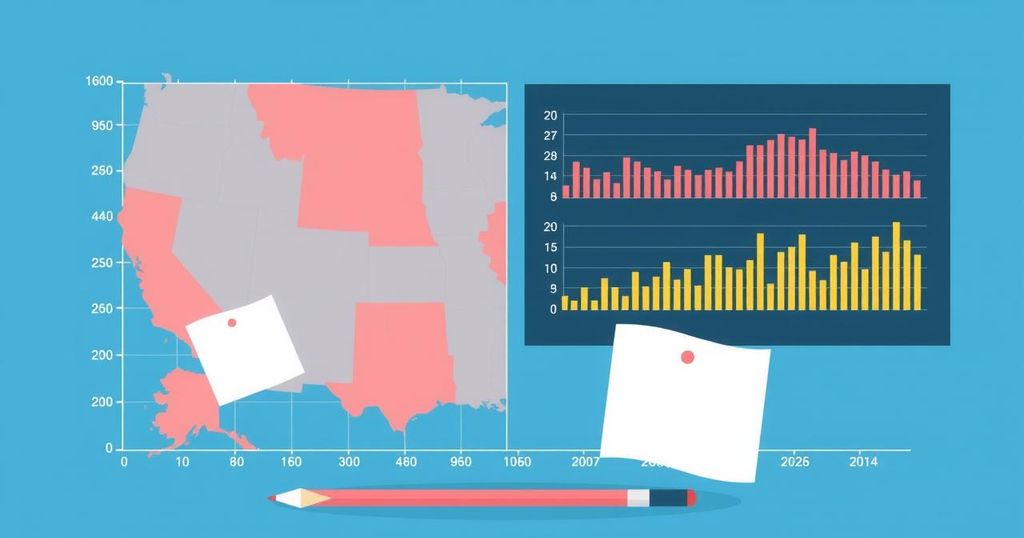The Significance of the 2024 Elections: Challenges and Opportunities for Democracy
The year 2024 was marked as a “super election year,” witnessing nearly 3 billion votes cast in 73 countries. Although the turnout underscored democratic participation, significant challenges persisted, including disinformation, political polarization, and concerns regarding electoral integrity. Notable movements emerged with younger leaders and shifts in women’s representation, yet systemic barriers kept the goals of inclusivity and effective governance elusive. The elections encapsulated both the potential for democratic renewal and the obstacles that lie ahead.
The year 2024 represented a historic turning point in the global democratic landscape, heralding the largest election year on record with nearly 3 billion individuals exercising their right to vote in 73 countries. This phenomenon, termed a “super election year,” encompassed elections at various levels, significantly shaping the political direction of nations worldwide. Many voters experienced the democratic process for the first time, highlighting the potential for broader inclusivity within democratic frameworks.
However, alongside this remarkable turnout, profound challenges persisted. A notable disconnect between citizens and decision-making processes emerged, with a substantial majority expressing skepticism regarding the reception of their voices in political matters. Trust in democratic institutions continued to deteriorate, aggravated by the prevalence of disinformation, rising political polarization, and the misuse of state resources by incumbent leaders attempting to maintain power. The proliferation of social media and artificial intelligence further complicated matters, creating an environment where misinformation flourished and electoral integrity came under threat as disruptive technologies like deepfakes and microtargeting gained traction.
The 2024 elections exemplified the complexities and dichotomies of global democracy, prompting significant political shifts as voters favored change over incumbency. Notably, far-right movements gained ground in nations such as France and Germany, capitalizing on economic grievances and cultural divides, although centrist coalitions effectively mitigated their ascent in several instances. Instances of electoral misconduct, including vote-buying in Serbia and voter suppression through stringent ID laws in the UK, contributed to a further erosion of trust in the electoral process.
In stark contrast to these challenges, a glimmer of democratic resilience was observed, particularly in Africa, where younger leaders such as those in Chad, Mozambique, and Senegal emerged, signaling a shift towards more inclusive governance. Cross-ideological collaboration among voters illustrated the potential for unity to advance democratic norms. Yet, systemic barriers remained, particularly regarding gender parity and the representation of younger generations among elected officials. Women’s legislative presence slightly declined overall, and while youth movements surged, the age gap between the leaders and the electorate persisted, hindering the representation of their interests.
The 2024 elections encapsulated a dual narrative—illustrating both the strides made towards democratic ideals and the vulnerabilities that accompany them. While challenges such as disinformation and socioeconomic disparities threatened democratic integrity, the year also presented opportunities for reform and enhanced inclusivity, suggesting a pathway for progressive change in governance.
The political landscape of 2024 was set against a backdrop of complex global dynamics, where nearly 3 billion citizens engaged in voting activities across 73 nations. This unprecedented participation illustrated the growing desire for democratic engagement, with many first-time voters stepping into the electoral arena. Nonetheless, the challenges facing democracies cannot be overlooked, as significant portions of the electorate felt disenfranchised and alienated from governance processes. Concurrently, the emergence of far-right movements amid economic hardships demonstrated a fragility in many democratic systems, warranting attention to the mechanisms of representation and inclusivity, especially concerning women and youth. Thus, the 2024 elections served as a significant reflection of both progress and adversity in modern democracies.
The events of the 2024 electoral year laid bare both the strengths and weaknesses inherent in democratic systems. As millions endorsed their participation, the enduring issues of disinformation, institutional trust erosion, and representation disparities persisted, challenging the integrity of democratic processes. Nevertheless, the year illuminated pathways for transformative reforms and the necessity for stronger, more inclusive governance. Ultimately, the balancing act between confronting electoral challenges and fostering democratic resilience defines the ongoing journey of global democracies.
Original Source: anfrel.org




Post Comment